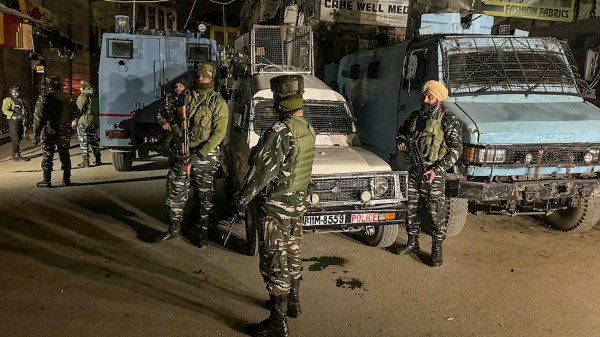
A recent wave of terrorist attacks in the Jammu region of Jammu and Kashmir (J&K) has raised concerns about the extent of local support for these activities. The arrests of two alleged overground workers (OGWs) in Kathua district, identified as Layaqat Ali and Mool Raj, have added weight to these suspicions.
The Arrests and Their Implications
Ali and Raj, residents of remote villages in the Pir Panjal range, are accused of aiding terrorists in hiding and navigating the area. Their arrests follow a series of deadly attacks in the region, including an ambush on a military patrol on July 8 that killed five soldiers.The involvement of locals in these attacks raises critical questions about the security dynamics in the region and the methods employed by terrorists to gain support. Authorities believe that foreign terrorists, unfamiliar with the terrain, rely on local guidance and logistical support to carry out their operations.
The Role of Local Support
Security sources estimate that over 60 foreign terrorists are active in the Jammu region, operating in small groups equipped with advanced technology and weaponry. Their ability to coordinate attacks and evade capture suggests a strong network of local support.This support may be obtained through coercion, financial incentives, or a combination of both. Impoverished villagers may be lured by promises of money or threatened with violence to cooperate with terrorists.
Recent Attacks and Their Impact
The recent surge in terrorist activities has had a devastating impact on the region. The attacks have claimed the lives of soldiers and civilians alike, creating a climate of fear and insecurity.The timing of the attacks, often occurring in isolated areas and at night, further points to the involvement of local operatives who possess intimate knowledge of the terrain.
The Challenge for Security Forces
The involvement of locals in terrorist activities poses a significant challenge for security forces. The rugged terrain and dense foliage of the region provide ample cover for terrorists, making it difficult to track and neutralize them.The reliance on local support also complicates intelligence gathering and counter-terrorism operations. Security forces must strike a balance between maintaining the trust of local communities and cracking down on those who aid terrorists.
Community Response and Concerns
The escalation in violence has alarmed locals in the upper reaches of the Jammu region. They have called for the strengthening of village defense groups (VDGs) to counter the threat. In some areas, VDGs are already assisting security forces in their counter-terrorism efforts.However, the recent attacks have also strained the relationship between security agencies and the nomadic Gujjar-Bakerwal community, a traditional source of intelligence. The granting of scheduled tribe status to the Paharis and the deaths of three community members in Army custody last winter have created a sense of mistrust among some Bakerwals.
The Way Forward
Addressing the issue of local support for terrorists requires a multi-faceted approach. Security forces must enhance their intelligence gathering capabilities and strengthen their presence in vulnerable areas.At the same time, efforts must be made to win the trust and cooperation of local communities. This can be achieved through community outreach programs, development initiatives, and addressing grievances that may be exploited by terrorists.
The fight against terrorism in Jammu and Kashmir is a complex and ongoing challenge. The involvement of locals in these activities adds another layer of complexity, making it imperative for security forces and communities to work together to counter this threat.
